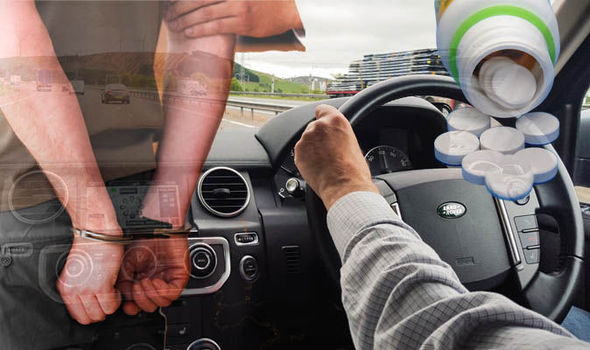
In my view, the law relating to drug driving is fundamentally unfair when compared with the equivalent legislation around drink driving.
The legal limits permitted on the amount of drugs taken are extremely low and actually don’t bear any relation to scientific opinion regarding what levels would result in ‘impairment’ in terms of ability to drive.
The specially commissioned Wolff report, written in 2013 for the Government to base their legislation on was actually ignored -for example, its recommended level for cocaine of 80ug was reduced by the Government to 10ug.
But the law is the law – which means that it is even more vital that drivers are aware of the potential risks they could be running in terms of fines and potential driving bans if they use drugs, habitually, occasionally or as a one-off experiment.
Duration of effects
One key factor is that drugs can stay in the body for much longer than alcohol – and different drugs have different rates of elimination. For example, cocaine will usually leave your system after between 6-12 hours and cannabis (for an infrequent user) 4-6 hours, but there are so many variables including the quantity of the drug that’s consumed, the strength of the dose and the frequency of use.
Heavy regular cannabis users are likely to be over the limit of 2ug/L blood most of the time. Cocaine users may be under the limit of 10ug/L for cocaine 12-24 hours after use but are still likely to have benzoylecgonine (a natural biproduct as the body processes the cocaine) in their system over the limit of 50ug/L of blood. We regularly come across clients with levels of 800ug/L 2-3 days after cocaine use and this can be present in large quantities in the blood for 5 days or more.
As illicit drugs do not come with labelling and exact measurements, it is impossible to guess whether you are over the limit or not.
Harsh penalties
The key thing drivers need to understand is the severity of the penalties – not least the mandatory disqualification for a minimum of 12 months.
Fines are also high – and there can be custodial sentences for repeat offenders.
But why is this so important to Fleet Managers – or any employer who has drivers on the road (in a company or their own vehicle) as part of their job?
The answer is because they have a duty of care: the HSE states that any vehicle being driven for work is an extension of the workplace and so the same safety law applies, meaning the risks need to be managed as part of any workplace health and safety arrangements.
There is well documented research that shows you are twice as likely to be involved in a fatal/serious injury collisions having taken cannabis – and the risk is between two and ten times more likely with cocaine.
In fact, up to 35% of drivers involved in a fatal road traffic collision are shown to have drugs or alcohol in their system. The higher the dose, the risk increases significantly. (See the WHO 2018 Global status report 2018) [link]
Impact of taking drugs or alcohol
The key effects of both drugs and alcohol on drivers include:
- SLOWER REACTION TIME – so a greater distance travelled before reacting
- LACK OF COORDINATION – the inability to manage vehicle when driving and react appropriately to an emergency
- REDUCED CONCENTRATION – people miss road signs or fail to see potential dangers and forget to signal
- IMPAIRED JUDGEMENT – affects people’s decision to drive when under the influence and how they react to potentially hazardous situations
So aside from any moral and social responsibility, employers have a legal obligation to ensure that their drivers are drug (and alcohol) free when on the road.
We offer a wide range of services to support employers including the writing of drug/drink policies, the provision of drug/drink practice test kits, and if a potential prosecution is incurred, representation via Auriga Advocates.
And to help ensure drivers understand the law and the consequences of breaking it, we offer a range of ‘Drive Bright’ courses – giving them the facts about drink and drug driving which could play a major part in keeping them – and other road users – safe.
To find out more, call us on 08000 556631 or get in touch by completing a contact form. One of our specialists will provide you with the best possible advice.
[gravityform id=”2″ title=”true” description=”true”]